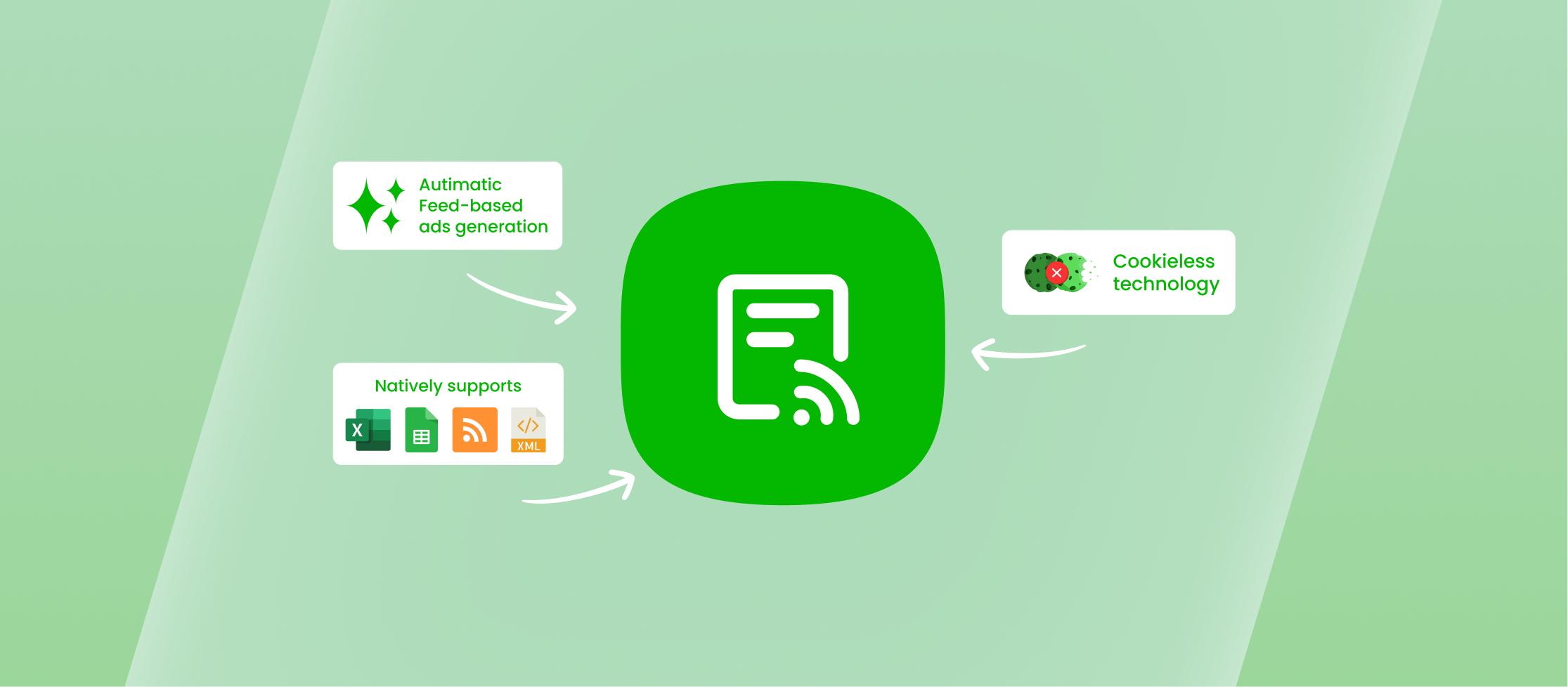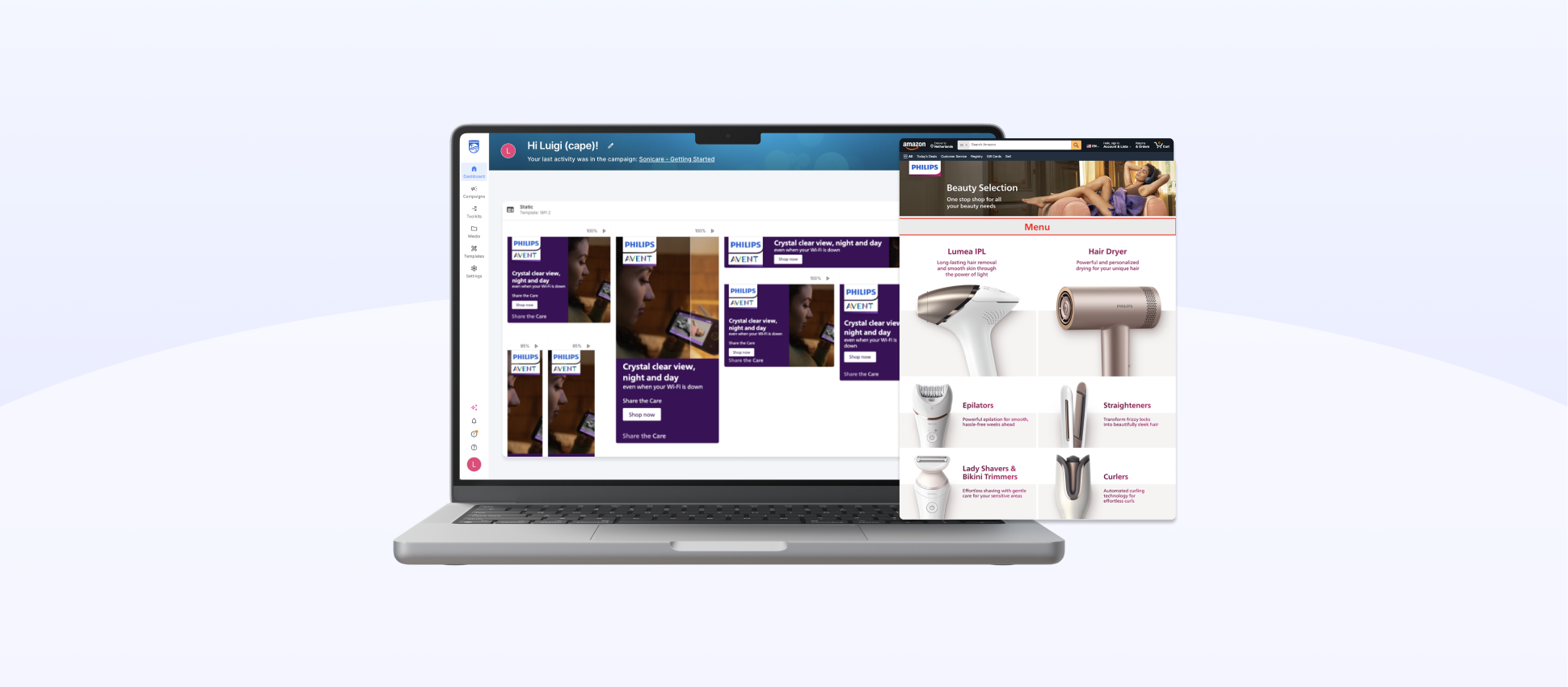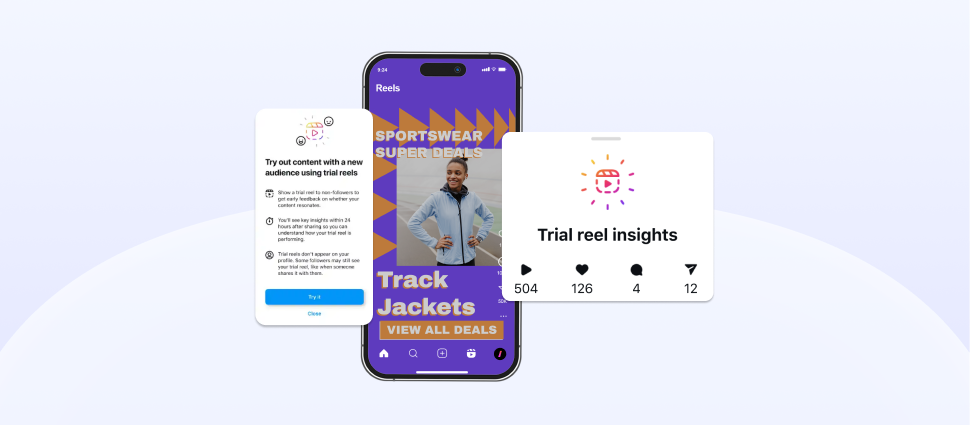Contextual Campaigns: The Future of Ad Personalization Without Cookies
5 min read
17 September 2024


In the competitive field of digital advertising, one thing remains constant: the quest to connect with audiences in a way that feels personal, relevant, and most importantly, effective. Gone are the days of one-size-fits-all advertising. One innovative way to engage with audiences is Dynamic Creative Optimisation (DCO), a technique that enables advertisers to create personalised and relevant ads at scale.
DCO can automatically build multiple versions of an ad using the same creative base, while tailoring dynamic elements. These elements are typically personalised using a range of data sources, including third-party data. However, with increasing regulations and the decline of cookie usage, personalising ads based on third-party data has become increasingly challenging. This is where Cape comes into play! Cape can achieve similar results without relying on cookies.
Ad personalisation with Cape
With Cape, you can use contextual data in your campaigns to truly connect with your customers, without relying on third-party data. Contextual campaigns deliver personalised content based on a user's present context, such as location, time-of-day, or weather. By tailoring messages to align with a user's specific situation, these campaigns boost relevance and engagement. This approach creates effective and converting ads for the business and a personalised experience for the user, without the use of cookies.
Contextual Campaigns
To serve contextual campaigns, the ad creator needs the users’ location data. In the bidding process, ad platforms only release IP data as an indicator of location, which is not specific enough for these hyperlocal campaigns. The ad platform itself does have the location data with great accuracy; therefore, we leave the serving of these hyper localised ads to the ad platforms. This allows the creation of:
Location-Based Ads: These ads target users based on their precise location, promoting relevant services or products nearby. For example, a café might advertise morning specials to people within a one-mile radius.
Time-Based Ads: These ads are scheduled to display at specific times of the day, matching user behaviour or needs. For instance, a food delivery service could promote lunch deals just before noon.
Weather-Based Ads: These ads adjust according to the local weather, offering products or services that match current conditions. A clothing store might advertise raincoats during a downpour.
Countdown Campaigns: These ads create urgency by counting down availability or offers, encouraging immediate action. An energy provider might show the remaining spots for a limited green energy plan.
Contextual Campaign Cases
Many types of businesses can benefit from contextual campaigns. Here are two examples: an energy supplier and a food delivery service, both using contextual data to personalise their campaigns.
Using contextual data as energy supplier
Energy providers could benefit from contextual campaigns by using location, time-of-day, and weather data. Imagine an energy supplier focused on local renewable sources. To maximise impact, they can target audiences near these energy sources with hyper-localised ads. Cape’s dynamic ad templates make this seamless. Once set up, these templates automatically update campaigns based on feeds with real-time data like location, weather, and energy availability. For example, on a sunny day in Amsterdam, ads showcase the available solar energy in the local area, while in windy Rotterdam, they highlight wind power from Rotterdam. Countdown campaigns also come into play for energy providers, highlighting the remaining spots a thet energy supplier or showing how much renewable energy you could’ve collected based on current sunlight or wind.
Using contextual data as food delivery
Food delivery services can also greatly benefit from contextual campaigns by using location, time-of-day, and weather data. Imagine a leading food delivery service that wants to provide customers with personalised food options tailored to their cravings and environment. With just a single setup, ads are automatically tailored based on real-time data such as location, weather, and popular local food options. For example, on a rainy evening in London, you might promote hot soups or comfort food, while on a sunny day in Madrid, it could highlight fresh salads or ice cream. This feed-based system enables you to scale campaigns effortlessly across different regions, ensuring each customer receives relevant, timely meal suggestions.
Latest News

Products and features
4 min read
11 March 2025
How Cape Solves Amazon Storefront Creation Challenges
As businesses grow, managing an increasing number of marketing concepts can become a logistical nightmare. From banners to videos and brand pages, finding and organising these assets across multiple business units often leads to inefficiency and confusion. That's where Cape comes in.

Industry insights
3 min read
20 January 2025
The New Instagram Layout Update: How to Optimise Your Feed for Non-Square Posts
Recently, Instagram has rolled out yet another update. What makes this one different? For casual users, a layout change of your feed may be just another visual element of the app to get used to. For marketers, it affects just about every aspect of your content strategy.

Industry insights
3 min read
02 January 2025
Optimising Your Content Strategy With Trial Reels
With shorter attention spans and a constant flow of information, creating engaging content is one of the key challenges for brands to get noticed by greater audiences and even their own followers. This is why optimising content strategy is extremely important, and focusing on trying to enhance your content can significantly improve viewership. One of the latest tools to help with this is Trial Reels on Instagram.



